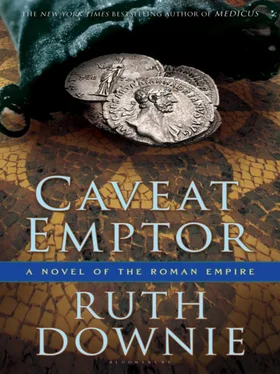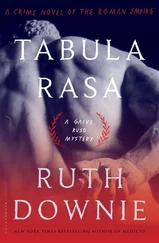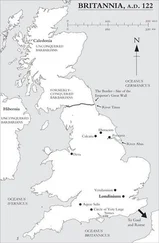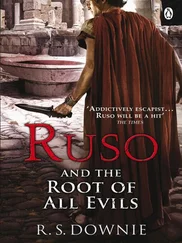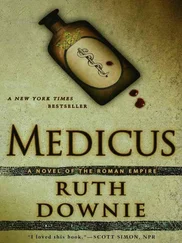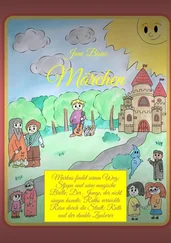Ruth Downie - Caveat emptor
Здесь есть возможность читать онлайн «Ruth Downie - Caveat emptor» весь текст электронной книги совершенно бесплатно (целиком полную версию без сокращений). В некоторых случаях можно слушать аудио, скачать через торрент в формате fb2 и присутствует краткое содержание. Жанр: Исторический детектив, на английском языке. Описание произведения, (предисловие) а так же отзывы посетителей доступны на портале библиотеки ЛибКат.
- Название:Caveat emptor
- Автор:
- Жанр:
- Год:неизвестен
- ISBN:нет данных
- Рейтинг книги:3 / 5. Голосов: 1
-
Избранное:Добавить в избранное
- Отзывы:
-
Ваша оценка:
- 60
- 1
- 2
- 3
- 4
- 5
Caveat emptor: краткое содержание, описание и аннотация
Предлагаем к чтению аннотацию, описание, краткое содержание или предисловие (зависит от того, что написал сам автор книги «Caveat emptor»). Если вы не нашли необходимую информацию о книге — напишите в комментариях, мы постараемся отыскать её.
Caveat emptor — читать онлайн бесплатно полную книгу (весь текст) целиком
Ниже представлен текст книги, разбитый по страницам. Система сохранения места последней прочитанной страницы, позволяет с удобством читать онлайн бесплатно книгу «Caveat emptor», без необходимости каждый раз заново искать на чём Вы остановились. Поставьте закладку, и сможете в любой момент перейти на страницу, на которой закончили чтение.
Интервал:
Закладка:
It was all speculation. The ambush-on-an-open-road theory was just about plausible, but none of it answered the question of what had happened to the missing brother.
The wooden bridge gave a dull boom as Dias’s horse stamped with impatience. Its rider said, “Tell you anything, sir?”
“Not really,” said Ruso, tossing a very small coin into the water for luck and hoping Christos, if he existed, was listening to Tilla’s prayers. “I think I’m ready for some dinner.”
They turned right off the main road soon after, Dias leading the way along a narrow unmade lane where grass sprouted between the wheel ruts. The gelding picked up its pace, recognizing the route. Ruso was aware of Gavo drawing up beside him, waving one hand to attract his attention and mouthing, “Sir?”
He slowed the horse, letting Dias draw away in front of them.
“Sir, I should never have said that about Dias. You won’t say anything to anybody, will you?”
“I’m sure he can explain,” said Ruso. “Don’t worry, I’ll have a word with him and sort it out.”
“But sir-”
“I won’t tell him who told me,” said Ruso. The youth evidently had no clue that he might be involved in covering up a murder. “With luck, he’ll never find out.”
The youth glanced at Dias, still a couple of horse lengths in front. He moved closer until his and Ruso’s knees brushed against each other and hissed, “Please, sir! It wasn’t anything bad. He just went to meet a woman.”
“I thought he spent the evening with you?”
Gavo shook his head. “In the end he had to, sir. Her husband was at home.”
“Ah,” said Ruso, who didn’t believe a word of it but could see why Gavo had been impressed.
“Please don’t tell anyone, sir. If his girl finds out, I’m dead.”
With that, Gavo drew back and left him to ride on alone. The gentle plod of hoofs on dried mud was accompanied by evening birdsong as they followed the track through fresh green woods that would have been an ideal ambush site but were implausibly far from the river.
After a couple of hundred paces the view opened to reveal the villa he had seen from the road: a two-story building with tiles on the roof, paint on the walls, and glass in several of the windows-which by British standards made it a high-class residence. Horses in the surrounding paddocks lifted their heads and trotted up to greet the new arrivals. A gray-headed figure that could only be Caratius appeared on the porch.
He had just raised one arm in greeting when there was a commotion behind them. The alarm calls of startled birds rose above the sound of someone crashing about and shouting. Ruso wheeled the horse around. Where Gavo should have been was an empty track. Dias, spear raised, yelled, “Keep back!” as he thundered past toward the woods. Over the hoofbeats, from somewhere deep in the trees, came a shrill and terrible scream.
It was all over by the time they got there. Gavo was standing triumphant, the tip of his spear pressed into the rough clothing of a prisoner who was lying facedown among the leaves.
“Got her, boss!” he announced proudly to Dias, and then to Ruso, “This woman was following us, sir.”
Ruso put both reins into one hand and swung down from the horse. As he knelt beside the prisoner, Dias approached and said something in British.
“Tell your man to stand easy, Dias,” said Ruso, relieved to see that the prisoner’s expression was one of indignation rather than pain. “There’s no danger.”
“She’s the associate of the Iceni woman,” said Dias.
“Yes,” said Ruso, sighing. “She’s also my wife. Would you mind letting her up, please?”
By the time Ruso emerged onto the track Caratius had arrived with a posse of excited farmworkers clutching pitchforks and horsewhips. His own escort was still wandering about the woods, trying to catch the horse that had fled from Gavo in all the excitement. Ruso jumped the gelding back over the ditch, then turned and leaned down to grab his wife’s hand as she leapt across onto the track with her skirts bunched up into the other fist.
The embarrassment of having to explain the arrival of an uninvited dinner guest who was still picking twigs out of her hair was something Ruso would later try very hard to forget. Caratius made an effort to be polite but the tone in which he said, “From the North, I see!” suggested that if Ruso was going to marry a Briton, he might have made a more civilized choice. Indeed, it probably looked as though Ruso had failed to mention her before because he was ashamed of her.
As Caratius showed them around the estate, Tilla seemed to be trying to make up for her bizarre behavior by being unusually sociable. She was busy complimenting their host on the mares and foals grazing in the paddocks when Ruso wandered a few paces farther along the track, which carried on past the house. He stopped. The river had not followed the course he had assumed. Instead it had swept round in a wide curve. Not only did it flow across Caratius’s land: down there in the shifting shadows of the willow trees he could make out some sort of planking and mooring posts.
It was difficult to concentrate on the tour of the stables. He barely noticed the tack room, hung with plenty of jingling decorations for Caratius’s slaves to polish. He had to force himself to pay attention to the conversation as they paused to watch a very small boy in man-sized boots hold the halter of a gray stallion while a man clamped its nearside hoof between his own thighs and circled it with a pair of long-handled pincers, clipping off a hard crescent of extra growth.
When Caratius finally left them in a hall that smelled of roasting beef and mold and went to warn the cook about the extra guest, he hissed, “What the hell are you doing here?”
“I am here to protect you.”
“I thought you couldn’t leave Camma on her own?”
“She is not on her own,” said Tilla, looking pleased with herself. “The housekeeper came to pay respects to her master. She said she will stay while I am out.”
“Well, don’t say anything careless. I think the guard captain was Valens’s burglar.”
“I told you,” she whispered, “you cannot trust these people.”
She lifted her hands to tuck a solitary primrose into her ruffled hair. She was still flushed after the chase through the woods. How did this woman always manage to be desirable at inconvenient moments?
“Turn round,” he ordered her as a slave approached clutching a towel. “Stand still. You’ve still got pieces of leaf stuck to your back.”
37
The men had gone into the dining room ahead of her. Tilla settled herself on the stool, leaned against the wall, and stretched out one leg so the slave could struggle with the knot in the damp leather lacing of her boot.
She had made a fool of herself, and the Medicus was embarrassed. Still, it was better to be a fool than a widow. Better to be embarrassed than to suffer some “accident” at the hands of the Catuvellauni. He would come to see that in a day or two. And at least she was getting dinner.
When the slave had finished drying her feet and taken her boots away to clean, she was ushered into a big room where instead of good beef there was all sorts of fiddly food set out in red bowls much like their own on a low table. Her husband and Caratius stopped talking and turned to look at her as if they had been discussing something important and secret. Perhaps Caratius had been trying to find out what the Medicus knew about the murder. Or perhaps he had been giving his own side of the marriage story that both he and Camma had been too embarrassed to tell in Londinium.
She sat in the wicker chair, relieved that this house did not have those terrible dining couches to go with the foreign food. She had never understood how people could eat lying down. It was against all common sense. A slave poured her watered wine, then offered her olives and oysters. She knew it was an odd combination. She might be a Northerner but she had traveled across the sea to places that most men like Caratius could only dream about. She supposed he was trying to impress.
Читать дальшеИнтервал:
Закладка:
Похожие книги на «Caveat emptor»
Представляем Вашему вниманию похожие книги на «Caveat emptor» списком для выбора. Мы отобрали схожую по названию и смыслу литературу в надежде предоставить читателям больше вариантов отыскать новые, интересные, ещё непрочитанные произведения.
Обсуждение, отзывы о книге «Caveat emptor» и просто собственные мнения читателей. Оставьте ваши комментарии, напишите, что Вы думаете о произведении, его смысле или главных героях. Укажите что конкретно понравилось, а что нет, и почему Вы так считаете.
